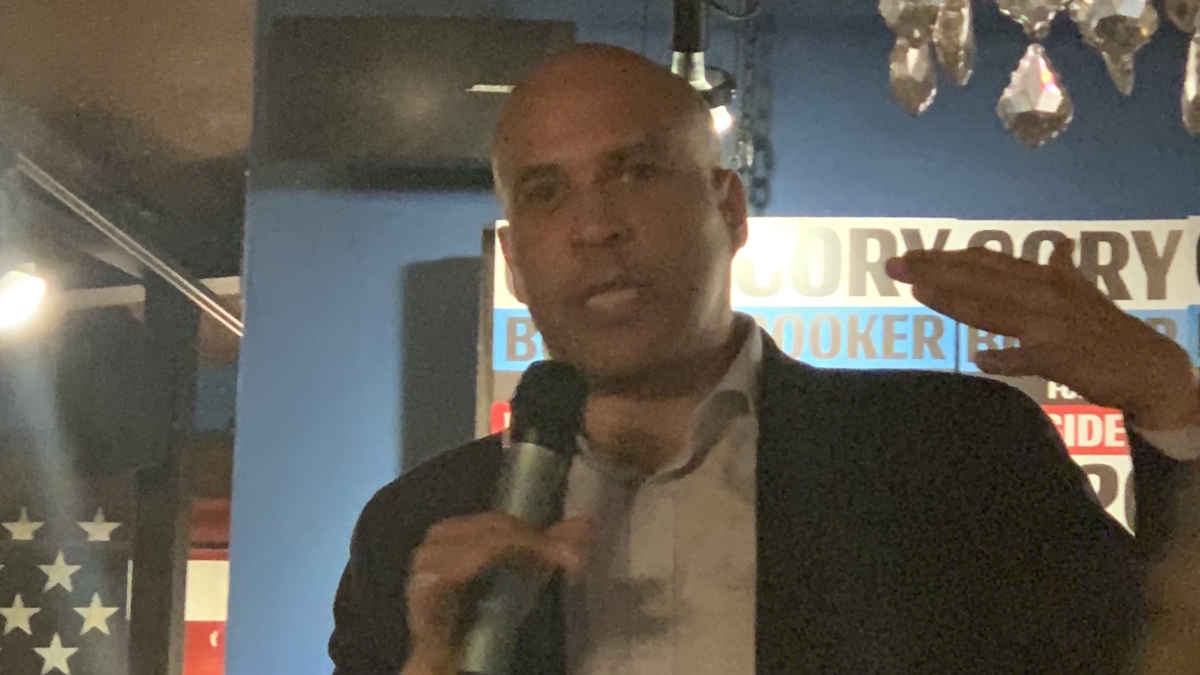Washington, D.C., Oct. 24 – At a presidential campaign fundraiser on Capitol Hill last night, Sen. Cory Booker said disability rights is “an important issue.” Speaking to members of The RespectAbility Report, he stated he has and is going to have a lot of policies relating to disability rights coming out.
“We have more to do to ensure equality for Americans with disabilities who still face high poverty rates & barriers to health care & quality of life,” Cory Booker tweeted in commemoration of the 29th anniversary of the Americans With Disabilities Act (ADA) this summer. “As president, I’ll fight for equal rights & inclusion for people with disabilities.”
This year marks the 29th anniversary of the ADA becoming law. The ADA was intended to ensure that people with disabilities could earn an income and achieve independence, just like anyone else. One-in-four adults in the U.S. have a disability. This includes people who are blind or deaf or have other visible conditions such as spinal cord injuries, as well as people with invisible disabilities including learning disabilities, mental health or Autism.
The Booker campaign has included a page on his website on ensuring equality for people with disabilities since its launch. “As president, Cory will work to ensure accessibility, equality, and opportunity for all people with disabilities,” his website states, including, “break down barriers to accessing employment, transportation, housing, and health care with the Disability Integration Act; fully fund the Individuals with Disabilities Education Act (IDEA); and raise wages for people with disabilities by phasing out the subminimum wage.”
Additionally, it is one of five campaigns to have an accessibility statement on its website, including both a live email address and phone number that users can contact for additional assistance. While their website is not yet fully accessible, they have been working with the Miami Lighthouse for the Blind in updating their website.
Earlier this year, the Booker campaign also had an hour-long phone call with RespectAbility detailing steps they could take to become more accessible – on their website as well as via social media and at events.
David P. of Baltimore was happy to find an ADA section at last night’s fundraiser. As a result of being hit by a car in his twenties, David had a traumatic brain injury, leading to deafness in his right ear and walking with a cane due to lack of balance. A disability advocate who works as a cashier in a grocery store, David said he did not call ahead to request accessible seating since he was unsure if he could attend. It is best practice to have an accessible seating section regardless if someone requests one ahead of time.
However, because of the layout of the restaurant, other people were standing in front of the accessible seating, blocking the view of voters with disabilities like David. In addition, there was a VIP section for supporters to meet with Sen. Booker prior to his speech and take photos. This section, however, was up a long flight of stairs with no elevator option. The lack of full accessibility is a systematic issue throughout all of the presidential candidates’ campaign events.
“I myself am able to handle stairs but I have good friends of mine who are not. If they were here, they would be very disappointed because they are good fans of Cory as well – and this applies to all the candidates’ events,” David said, emphasizing that all of the candidates still have some events that are not fully accessible.
“I am not a militant disability rights guy,” David continued. “I know Cory is doing the best he can and better than others. I understand that it’s situational. Sometimes there’s just no elevator – metaphorically and literally.”
Following Sen. Booker’s speech, he took time for selfies with his supporters. David had plans to tell him how important disability rights are to him. “People with disabilities are the one minority that never gets talked about and it sucks,” he said.
A recent poll found that 85 percent of registered voters say it is very or somewhat important to them that presidential candidates have campaign events and websites that are open and accessible to people with disabilities, just like everyone else. Voters with disabilities themselves are more enthusiastic about participating in the 2020 elections (52 percent), four points higher than the national average. Despite both of these data points, none of the presidential candidates on either side have made their campaigns fully accessible to voters with disabilities.


Be First to Comment